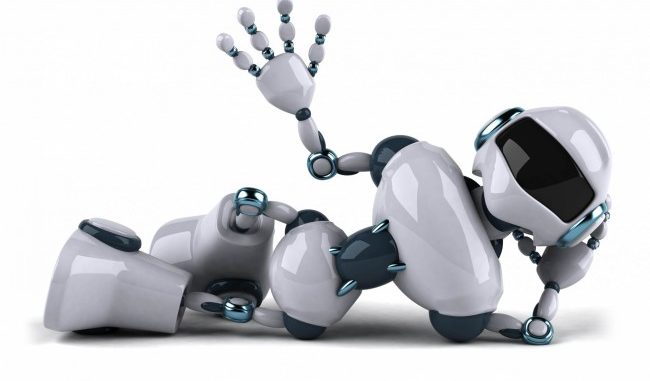
Artificial Intelligence: Overview

Since the invention of machines or computers, their ability to carry out various tasks went on increasing exponentially. Human beings have developed the power and capability of computer systems in terms of reducing their size with respect to time, their diverse working domains, and their increasing speed.
A branch of Computer Science known as Artificial Intelligence (AI), pursues creating the machines or computers as intelligent as humans.
Artificial Intelligence: What It Is
Artificial Intelligence is the engineering and science of creating intelligent machines, in particular, intelligent computer programs. AI is related to the alike task of using computer systems to understand the level of human intelligence, nonetheless, it doesn’t have to narrow itself down to biologically observable methods.
AI may also be defined as a way of making a computer-controlled software, or a robot think intelligently in the same way intelligent human beings think. It is achieved by studying how the brains of human beings think, and how they work, learn, and decide while trying to find a solution to a problem, and making use of the results of this study as a foundation of creating intelligent systems and software.
Development

The development of Artificial Intelligence began with the goal of creating alike intelligence in computers/machines that we see and regard high in human beings. While exploiting computer systems’ power, the curiosity of the founding fathers of AI, lead them to wonder, “Can machines behave and think like human beings do?”
Knowledge engineering was a core part of research on AI. Renowned computer scientists like John McCarthy noted that machines could often react and act like human

beings only if they had abundant information that related to the world. McCarthy concluded that AI has to have access to categories, objects, relations and properties between all of them in order to implement engineered knowledge.
However, one of the most notable and perhaps critical conclusion made in the initial stages of AI development was that initiating common sense, problem-solving power and reasoning in machines was and still is a tedious and difficult task.
The following is an overview of the advantages and disadvantages of artificial intelligence:
Advantages
· With AI, the chances of error are next to zero, and greater accuracy and precision is achieved.
· Artificial intelligence plays an important role space exploration. AI robots are used to explore space. These are machines have the ability to withstand the unfriendly environment of the inter-planetary space. They are created to cope and function in such a way that interplanetary atmospheres don’t affect their physical functioning and state.

· Robots with AI can be programmed to reach the nadirs of Earth. They can be used to mine important minerals and to dig for fuels. The intelligence of these machines can also be harnessed to explore the depths of seas and oceans.
· Smartphones are a very good example of the artificial intelligence application. In utilities such as correcting spelling errors made by humans and being able to predict what users are going to type, AI is at work.
· Fraud detection in smartcard-based systems is also possible thanks to Artificial Intelligence. Banks and other financial institutions employ it to manage and organize records.
Disadvantages
· One of the main downsides of AI is the cost suffered in the repair and maintenance. Machines require to be made smarter, and programs have to be up-to-date to cope with the changing requirements. In case of a damage, the cost of repairs may be so high. Procedures to recover lost data or code may be costly and time-consuming.
· Another important concern as per the application of AI is about moral values and ethics. Is it ethically right to create human beings’ replicas? Are we morally correct to re-create intelligence? Intelligence is one of nature’s gift to us. It may not really be okay to install it into computers or machines to make it serve us for our benefit.
· If intelligent robots begin to take the place of human beings in every field, it’s going to eventually cause unemployment. People are going to be left with no jobs. So much joblessness may result in low standard of living. Thinking intelligent robots machines will govern every field that humans occupy, will leave millions of people languishing in poverty.
It should be understood that AI has many advantages but it has its share of downsides too. Its risks and benefits should be weighed carefully before employing it for the convenience of humans. Or, in an attempt to play God, humans may destroy themselves.
